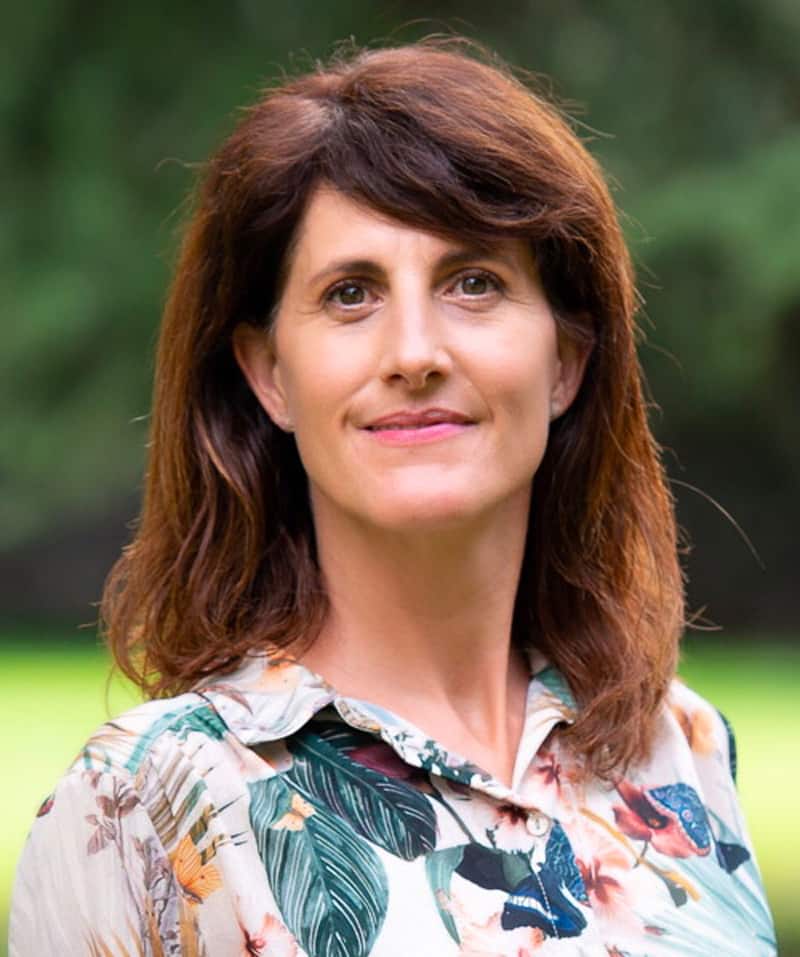A new general secretary at CIPEL
Newly appointed to this key position after an international selection process, Nicole GALLINA takes over from Audrey KLEIN, and is committed to continuing CIPEL's many missions with the existing team.
A biologist with a Master's degree in Environmental Sciences in Aquatic Ecotoxicology, Ms. Gallina first worked for the State of Geneva and the University of Geneva as a hydrobiologist. She then turned to an academic career, obtaining a PhD dedicated to the effects of climate change on water quality in deep peri-alpine lakes, as well as two postdoctoral fellowships, in New Zealand and Geneva, in the fields of water quality modelling and aquatic physics. These experiences enabled her to work for 15 years in the context of lake ecology, in particular that of Lake Geneva. In addition, she has acquired solid experience in project management and the direction of organizations active in the fields of soft mobility, the environment and health. With a command of five languages, Ms. Gallina will be able to forge links and promote Lake Geneva to a particularly wide audience.
"I'm delighted to take on the role of CIPEL General Secretary, and honored by the trust placed in me by the heads of the French and Swiss delegations.
Lake Geneva holds a very special value for me. This precious resource of exceptional and inspiring beauty never ceases to amaze me. For many years, Lake Geneva has been at the heart of my scientific work on aquatic ecology. It is also an essential landmark in my daily life, having lived close to its shores for the past 20 years.
Lake Geneva and its watershed represent a rich cultural heritage and are of great ecological, social and economic importance. Lake Geneva is the largest natural lake in Western Europe and the natural link between Switzerland and France. In addition, it provides numerous ecosystem services such as drinking water and electricity production, transport, fishing, tourism and recreation. Its watershed is home to 1.6 million people, more than half of whom rely on Lake Geneva for their drinking water. Its biodiversity is considerable. Given the ecological richness of Lake Geneva, some of its surfaces have been classified as natural zones of ecological interest for flora and fauna. Wetlands of major interest, registered under the RAMSAR convention, also continue to exist.
Today, Lake Geneva is in good condition. This record is the result of CIPEL's pioneering, committed and responsible management, an honorable effort carried out for over 60 years. Through its missions and actions, CIPEL has succeeded in protecting the waters of Lake Geneva.
However, many pressures continue to threaten Lake Geneva. These include population growth, intensification of land use, the presence of micropollutants, the invasion of exogenous biological species, the proliferation of potentially toxic algae, hydrological changes and, of course, climate change. These pressures have a direct impact on rare natural habitats, biodiversity, water quality and water resource management.
Against this backdrop, it is essential that we do everything we can to meet the challenges that are weakening Lake Geneva and its watershed. A healthy ecosystem rich in biodiversity is more resilient and better prepared to maintain its equilibrium in the face of internal changes, shocks and external disturbances.
I'm confident that these major challenges will be met through strengthened, coherent and forward-looking cross-border management, and through fruitful and rewarding cooperation between all those involved in the Lake Geneva region. Elected representatives, public authorities, scientists, experts and users on both the French and Swiss sides all have a role to play!
The aim is not only to further expand the network of players through targeted, popularized and engaging communication, but also to promote the exchange of knowledge beyond the Franco-Swiss border: to inspire and inspire other international institutions that fulfill missions similar to those of CIPEL.
It is with this motivation that I look forward to helping to meet the challenges facing the protection of the waters of Lake Geneva. Together with my colleagues in the secretariat, I will ensure the smooth running of the commission, with the aim of successfully implementing the 2021-2030 action plan.
In conclusion, I would like to thank all our stakeholders in advance for their commitment and our close collaboration."
You will find his contact details below:
- Mrs Nicole GALLINA
Telephone: +41 (0)58 460 46 69
E-mail: n.gallina@cipel.org
Postal address: CIPEL - Route de Duillier 50, CP 1080 - CH-1260 Nyon 1
CIPEL is delighted to be able to draw on its expertise to pursue and intensify the collaborations and relationships that unite the many partners working for the future of Lake Geneva.









